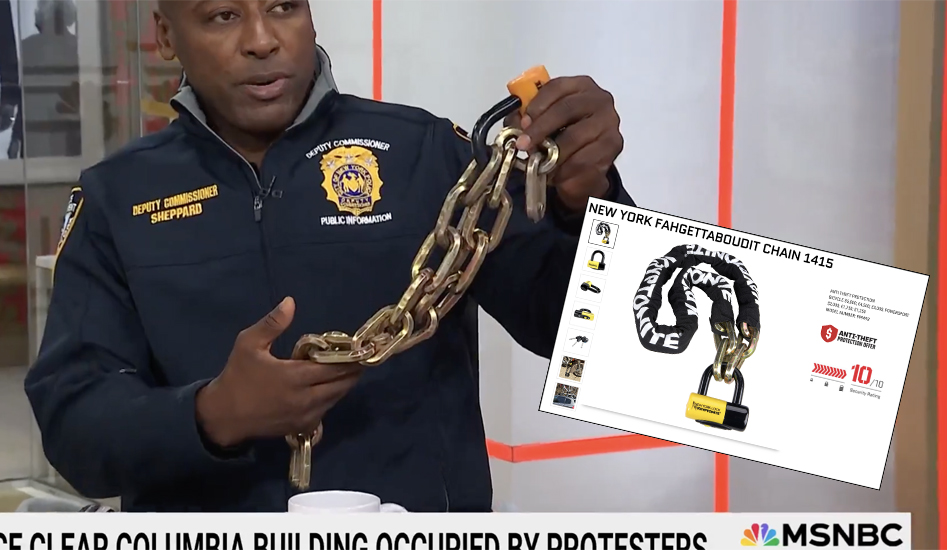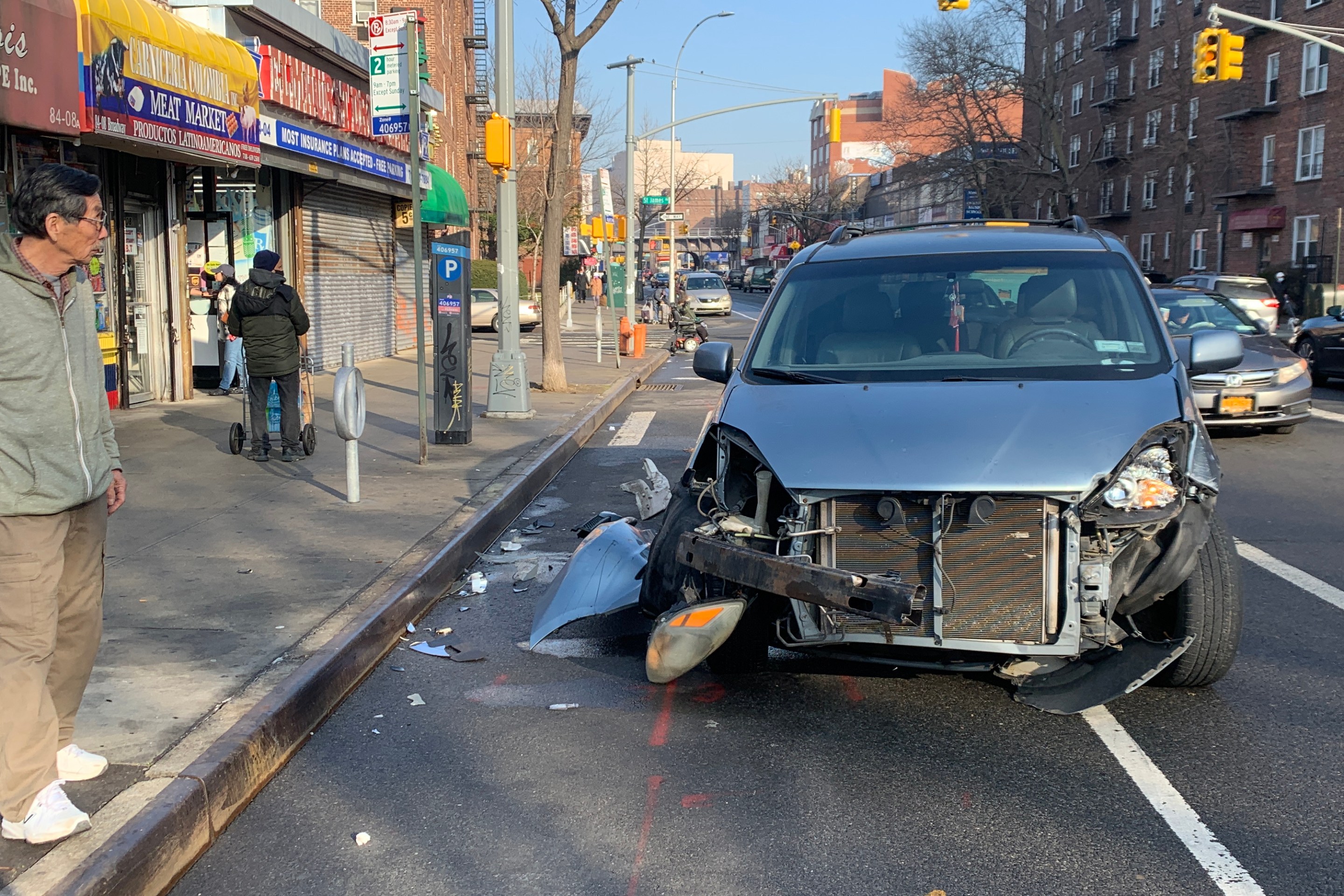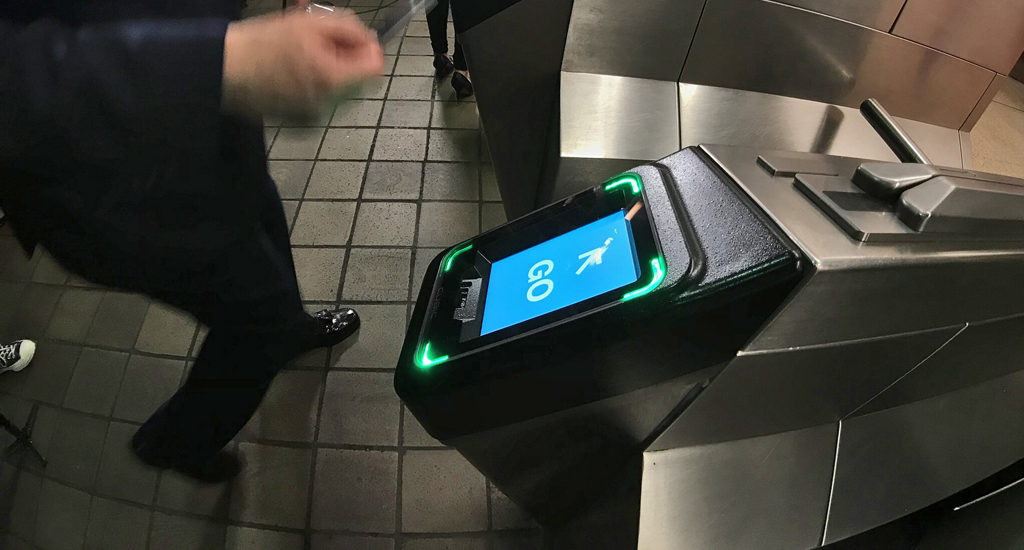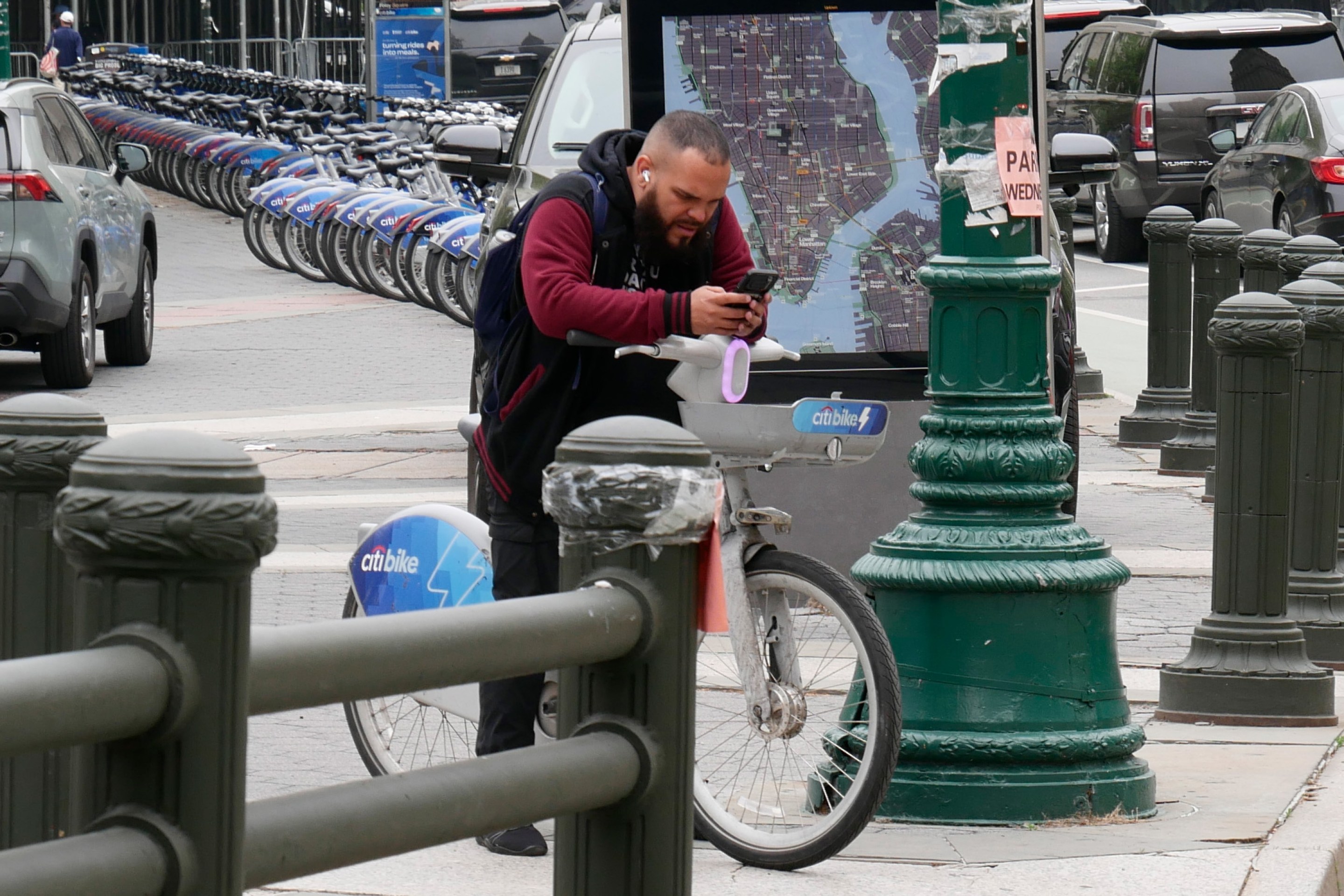Upper West Side Community Board Tries To Muzzle Street-Safety Activists
12:01 AM EDT on May 27, 2022
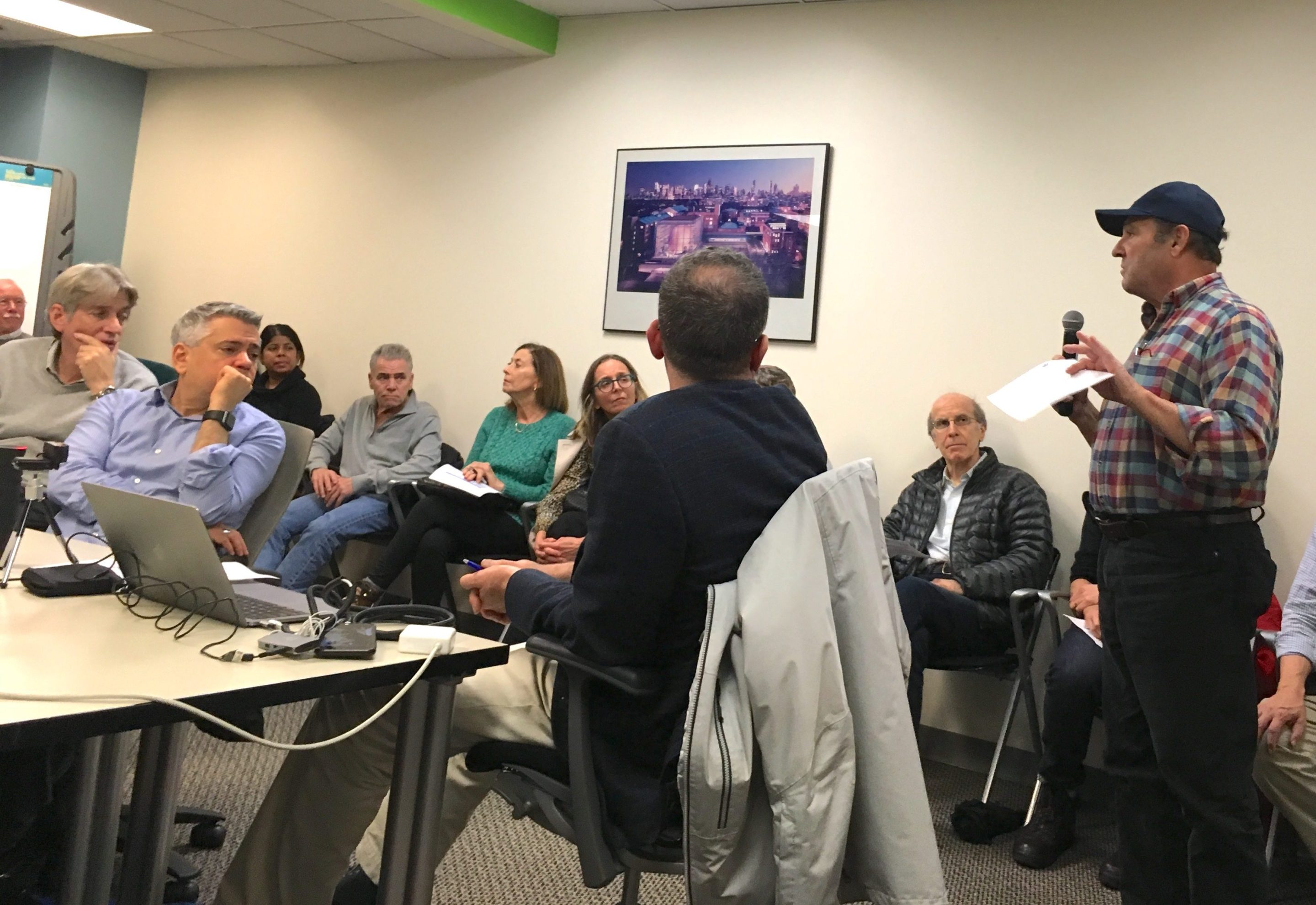
A pro-car Upper West Side resident rises to defend his entitlement at the CB7 Transportation Committee Meeting in 2019. Some CB7 members are sorry that the body passed a resolution asking the city to consider curb uses other than parking. Photo: Eve Kessler
Revenge is a dish best served ... by changing the rules.
An influential Manhattan community board is attempting to re-write its bylaws in order to limit the participation of street-safety activists — especially board members of Transportation Alternatives — because some members oppose the activists' successful promotion of protected bike lanes and a resolution on limiting free parking in the neighborhood.
The proposed new rules for Community Board 7, which comprises the Upper West Side from 59th to 110th streets, would prohibit anyone belonging to the leadership of a non-profit group with "an interest in a matter before the board” from voting if "the organization has taken a position on such matter." In that case, the new rules state, "the member shall vote ‘present but ineligible to vote,’” according to a running tally of the changes being shared among board members. The new rules also would prohibit such an individual from heading a committee "if that committee regularly reviews matters before it which concern that organization’s interests."
The new rules, if adopted, would go well beyond the current code, which only prohibit voting if the board member’s affiliated organization has a financial interest in “a matter before the board,” such as a restaurant seeking a liquor license. If such language were to spread among community boards — whose 50 members are appointed by each borough president for set terms — it could have a significant chilling effect on free-speech rights of many different kinds of activists. Indeed, borough presidents tend to select activists for community boards because they are knowledgeable and active in their communities and, as such, often have memberships or leadership roles in many groups. Thus, the language could require a tidal wave of recusals. The proposed changes are on-trend, however — joining the efforts of other election-deniers across America to curtail voting rights based on perceived viewpoint.
The sally against the Upper West Side activists is only the latest attempt of car-loving commissars on community boards to squelch the free speech of street-safety advocates — a growing part of the city that only is beginning to gain a voice, and which has an avid Manhattan constituency. Several years ago, Manhattan CB8 tried to restrict a member who was an employee of a bike-related not-for-profit from voting on bike-related matters. (The Manhattan Borough President's Office, then under Gale Brewer, sided with the not-for-profit staffer, ending the bid to muzzle her.) In 2018, then Council Member Laurie Cumbo removed safety activist Hilda Cohen from Brooklyn CB2, claiming that Cohen had to make way for new voices even as Cumbo renewed the terms of longer-serving board members.
The proposed bylaw changes come two years after the full CB7 board approved a resolution originating with street-safety activists on the Transportation Committee asking that the city reassess its policy of giving car owners free parking along almost every residential curb. The resolution was adopted after more than a year of public meetings in which residents vented opinions both for and against the current free-parking regime — but the passage of the resolution still rankled opposing board members. Earlier spats included the pitched 2013 fight over the protected bike lane on Amsterdam Avenue protected bike lane and the 2019 animus over the one on Central Park West. The latter lane — which the activists fought for after a drunk truck driver killed cyclist Madison Lyden on the road — drew a law suit from local property owners who opposed the removal of parking.
One of the street-safety activists, Ken Coughlin, called the task force's bid "the latest chapter in a decade-long effort by some CB7 members to keep board members who are also affiliated with groups that advocate for safer streets from voting." He said opponents had tried to muzzle him because he then was a Transportation Alternatives board member — even though they had their own affiliations that might have signaled interests.
Coughlin said that he had consulted with a lawyer at the city's Conflicts of Interest Board as to whether a member of a not-for-profit board need recuse if the group had taken a public policy position, and was told that membership in an organization does not require someone to recuse from voting.
The Conflicts of Interest Board pointed Streetsblog to this site, which explains that recusals are for "any matter that may result in a personal and direct economic gain" and gives the following example on public-policy questions (emphasis in the original): "You are a board member of a not-for-profit organization dedicated to composting in New York City. Your community board is considering a resolution to call on the New York City Department of Sanitation to develop curbside composting in your district. You may vote on the resolution, even if the organization has taken a policy position on the resolution."
Coughlin remains on TA's Advisory Council, as is Transportation Committee Co-Chairman Howard Yaruss — another board member at whom the new language is aimed.
"They are disqualifying individuals with real-world expertise from voting on the issues that they know the most about," Yaruss said, noting, for example, that another CB7 member, who sits on the MTA board as a result of his years of experience on transit matters, would be disqualified under the proposed rules from voting on transit-related issues.
The proposed language, which was discussed at a contentious meeting on May 18, does not reflect the understanding of conflicts-of-interest and free-speech advocacy of Manhattan Borough President Mark Levine, who "communicated to the board our serious concerns with any language that would unfairly prohibit board members from voting or participating in board meetings due to their membership in an advocacy group," according to his spokesman. The Beep, he added, would "continue to work with the board" on the issue.
Sara Lind, the policy director of Open Plans (a sister organization of Streetsblog) and CB7 member, added, "This move will discourage many knowledgeable, civic-minded people from serving on our community board and others if such changes become widespread."
A spokesman for Transportation Alternatives, Cory Epstein, echoed that.
“These proposed changes would have profoundly negative effects on civic participation — the very opposite outcome that community boards aim to achieve," he said. "In a year when Manhattan traffic deaths have risen by 42 percent, we hope that the board will focus on solutions that make streets safe for everyone rather than advancing these exclusionary bylaws."
All three board members were quick to add that they were speaking in their individual capacity.
Even so, in the discussion at the meeting, task force members insisted that the proposed language represented a proper reading of the city's conflict-of-interest laws. Jay Adolf, a lawyer who has been critical of the actions of street-safety activists, said the more expansive language had been gathered from "a fair compendium" of such sources. Task Force Chairwoman Susan Schwartz said that the prohibition on voting only pertained to individuals in "leadership" roles and was not an attempt to "gag" anyone.
Even so, it was not the first time that Adolf and Schwartz had tried to silence Coughlin and Yaruss because of their views. The two were among 10 CB7 members who in April 2020 — two months after the "parking" resolution — wrote to the then-chairman asking him "to consider a restructuring and rebalancing of the Transportation Committee."
The letter-writers said they were motivated out of concern "about the perceived bias of the Transportation Committee, largely because so many members of the committee are affiliated with the lobbying group Transportation Alternatives, and particularly having a co-chair who is a board member of TA."
"Many members of the public now contend that CB7 no longer provides a balanced view of the community’s transportation concerns, but rather votes in a predictable block to advance TA’s agenda," the letter continued, which was signed by other bylaws task force members.
The bylaws are still a draft, said CB7 Chairman Steven Brown, promising that he would "wait until I have seen the final document before making any comments."
The full CB7 board is expected to vote on the proposed bylaws at its June 7 general meeting.
This story was updated to reflect the pointer of the COIB.
Stay in touch
Sign up for our free newsletter
More from Streetsblog New York City
OPINION: Congestion Pricing Will Help My Family Get Around As We Navigate Cancer Treatment
My partner was recently diagnosed with cancer. Congestion pricing will make getting her to treatment faster and easier.
EXCLUSIVE: OMNY Debuts on Fair Fares After Delays
The long-awaited Fair Fares expansion will launch as a three-month pilot for a few dozen riders.
Good Luck Docking Your Citi Bike In Lower Manhattan
Many frustrated commuters to Lower Manhattan opted to simply abandon their Citi Bikes undocked due to the lack of open spots in the area.

